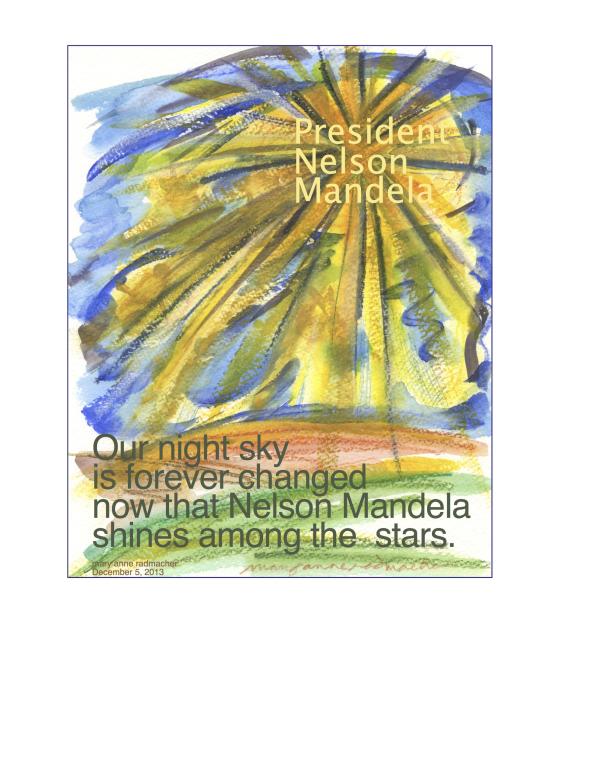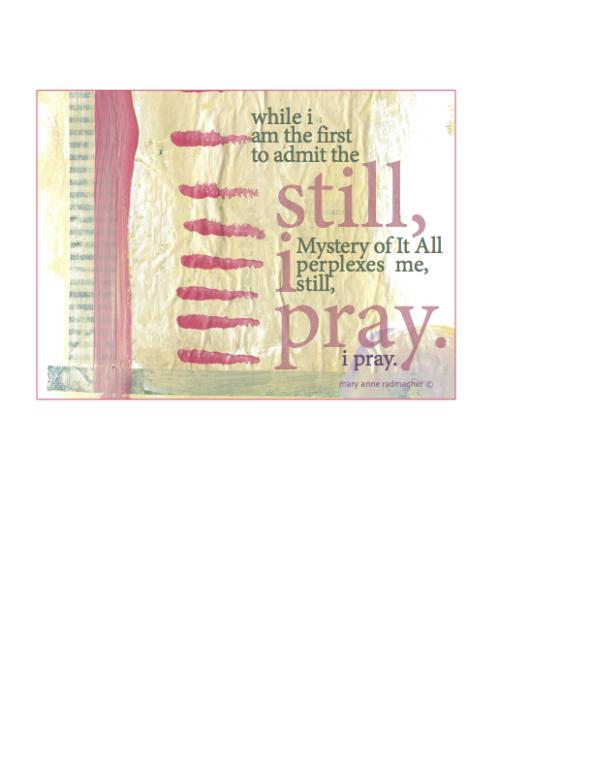Kayla, following the model for an effective review, asked me minimal questions and submitted her first book review. Kayla, who processes the grief of losing her sister when she was a youngster, has turned to conventional poetry to understand her loss. She may now consider branching out into other forms of poetry, she tells me. I’m happy to share her review with you, with her permission.
Kayla Patek
English Composition I
Dr. Vaughn
2 December 2013
Mary Anne Radmacher’s most well-known writing, Courage Doesn’t Always Roar, is the topic of this review. With its descriptive word choice, unique style and beautiful message of the different types of courage, this little book is meant to inspire. In a Q&A I did via email with the author (she lives in Seattle but considers herself a true Oregonian), she told me that her word choice was because she wanted to connect with a variety of readers. The author’s book was difficult to obtain! I had to go to Fairview Heights, IL, in order to buy her book for this assignment. The book was required because I’m critiquing it (positively) in this essay. If you could ask ANY author ANY questions with NO limit on the number, how many would you ask? That’s easy for me. I would politely ask Mary Anne as many questions as I could think of that have to do with this assignment. I would choose my words, and way of asking, carefully. Word choice must be creative when writing inspirational pieces.
Mary Anne uses words like ‘courage’, ‘try’, and ‘again’ to create imagery. This would demonstrate the image of NOT giving up too easily without a fight. Other words used (and phrases repeated for emphasis) include: “It takes courage” and “To reinvent”. My favorite phrase that I found while reading was “Change of any sort requires courage…courage to write a new story of your life with the pen of each day…of every moment.” These words made a huge and joyful impact on me. Mary Anne and I both have the same gift; we are writers…of poetry, stories, books, and essays. Writing is a blessing and gift. In composing poems, stories or essays, each piece has a different style.
This encouraging author “uses a style of figurative language that borders on poetry.” What author does NOT include figurative language in her writing? There is an easy answer to this rhetorical question: NONE. An example of her use of figurative language would be “Change of any sort requires courage…courage to write a new story of your life with the pen of each day of every moment.” (Metaphor). I could not find an example of poetry in the book, but the rhythm and flow of the words says it all. Mary Anne Radmacher’s message was meant to inspire us all.
The words that inspired me most were at the very end of her short, little book: “Perspective in the LARGE, grace in the small, an open hand, a practiced…pause…a ‘YES!’, courage doesn’t always roar.” These six phrases at the very end of the writer’s book have words so strong that I became blissful upon reading the two pages upon which these phrases were printed. Inspirational authors are blessings to the writing world. Writers, such as Mary Anne Radmacher, give people hope in trying times. Thanks to her words, positive energy is spread all around the world. Inspirational authors are amazing people, and Mary Anne Radmacher is NO EXCEPTION. Her messages are of of hope, bravery, strength, willingness and more.
In conclusion, the most well-known writing of Mary Anne Radmacher, Courage Doesn’t Always Roar, is wonderfully inspirational AND encouraging because of word choice, style and the message conveyed by the words on the page. I loved her variety of words; synonyms, figurative language, etc. The style of how Mary Anne writes interests me. I’ve never known or heard of an author using figurative language that borders on poetry. The best part about the book was the message she wanted to give the audience. Now, a personal note to Mary Anne: Thank you for allowing me to write this review of your great, little book. It has caused me to expand my horizons as a writer and branch out from only publishing memorial poetry.

